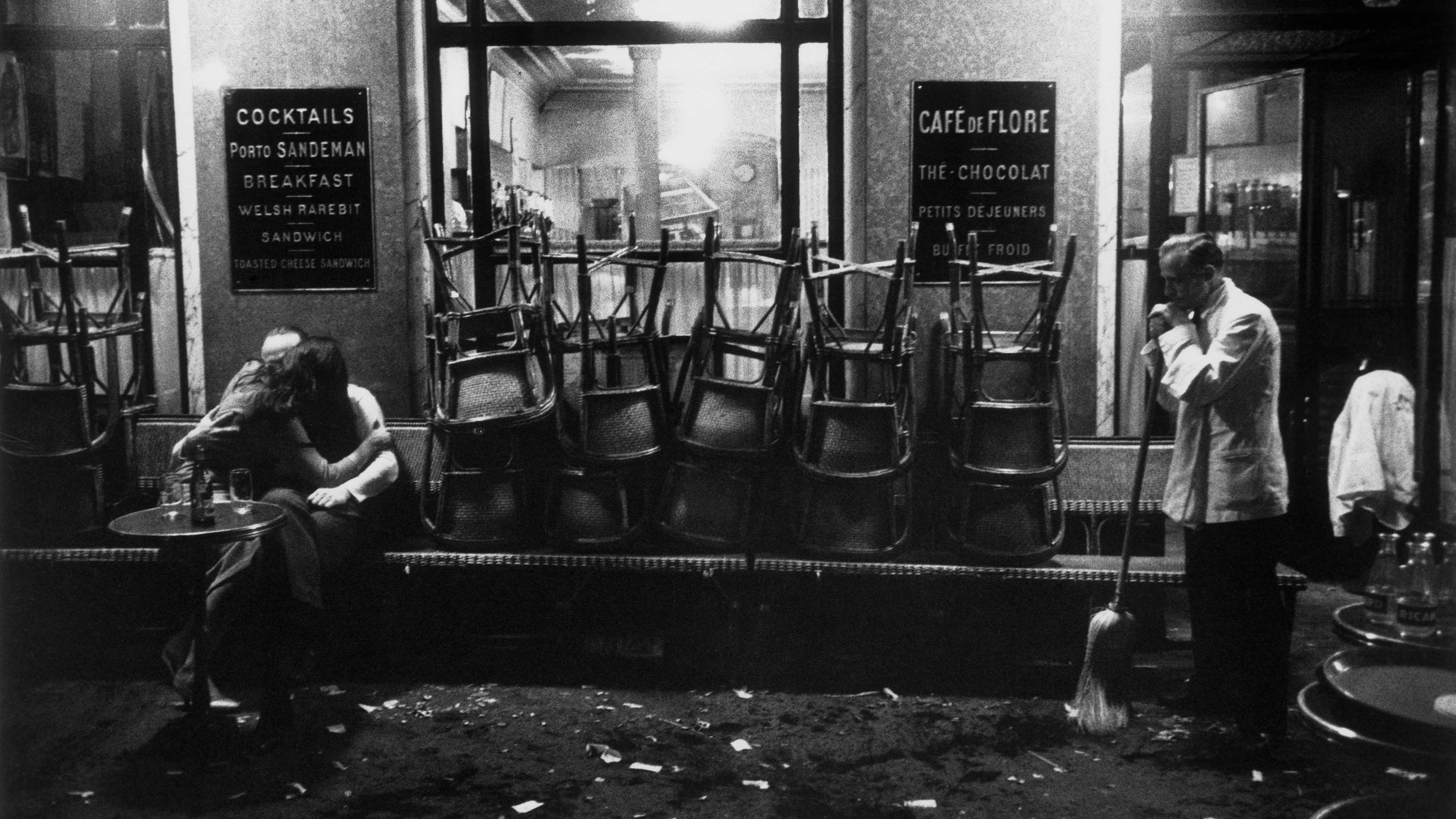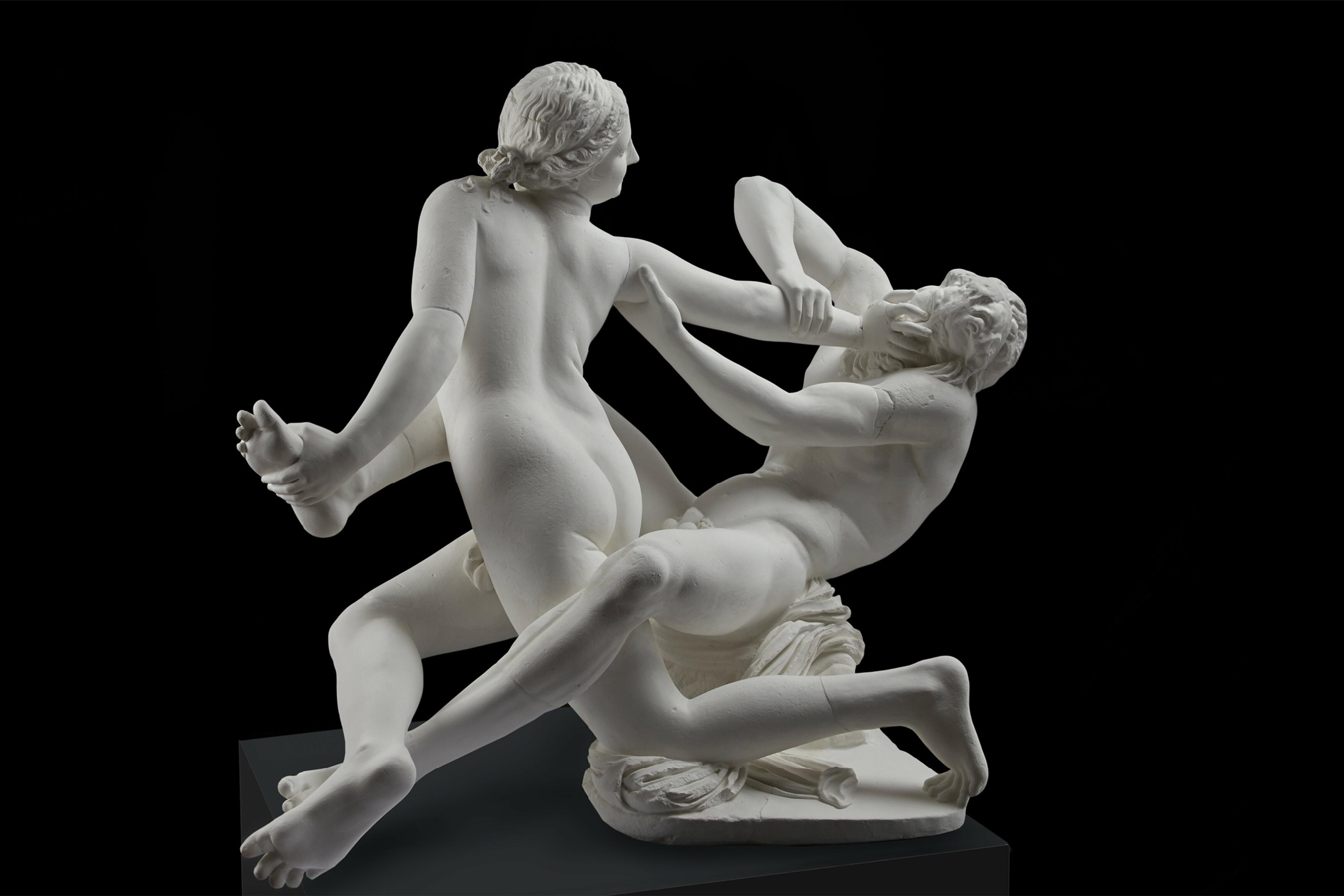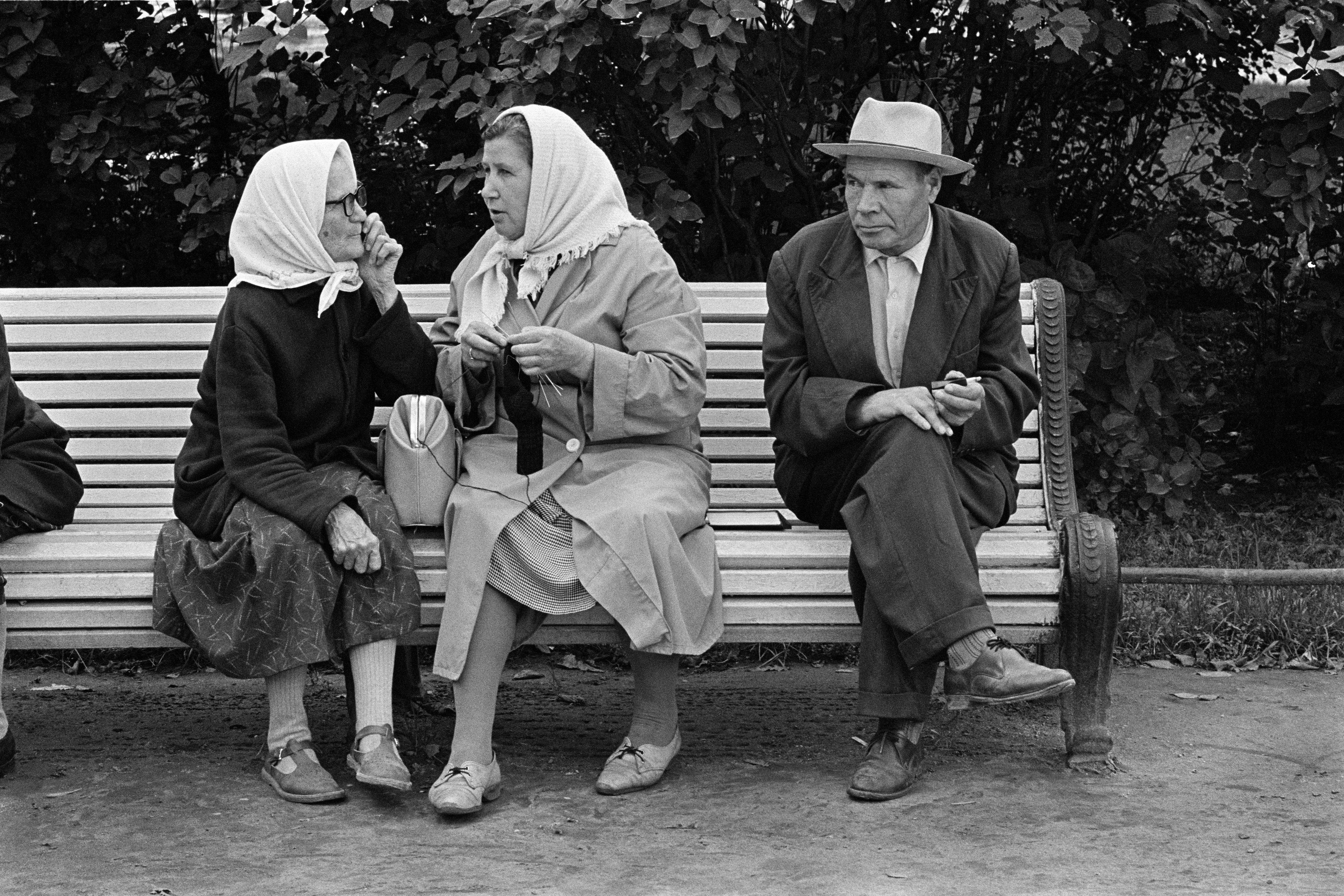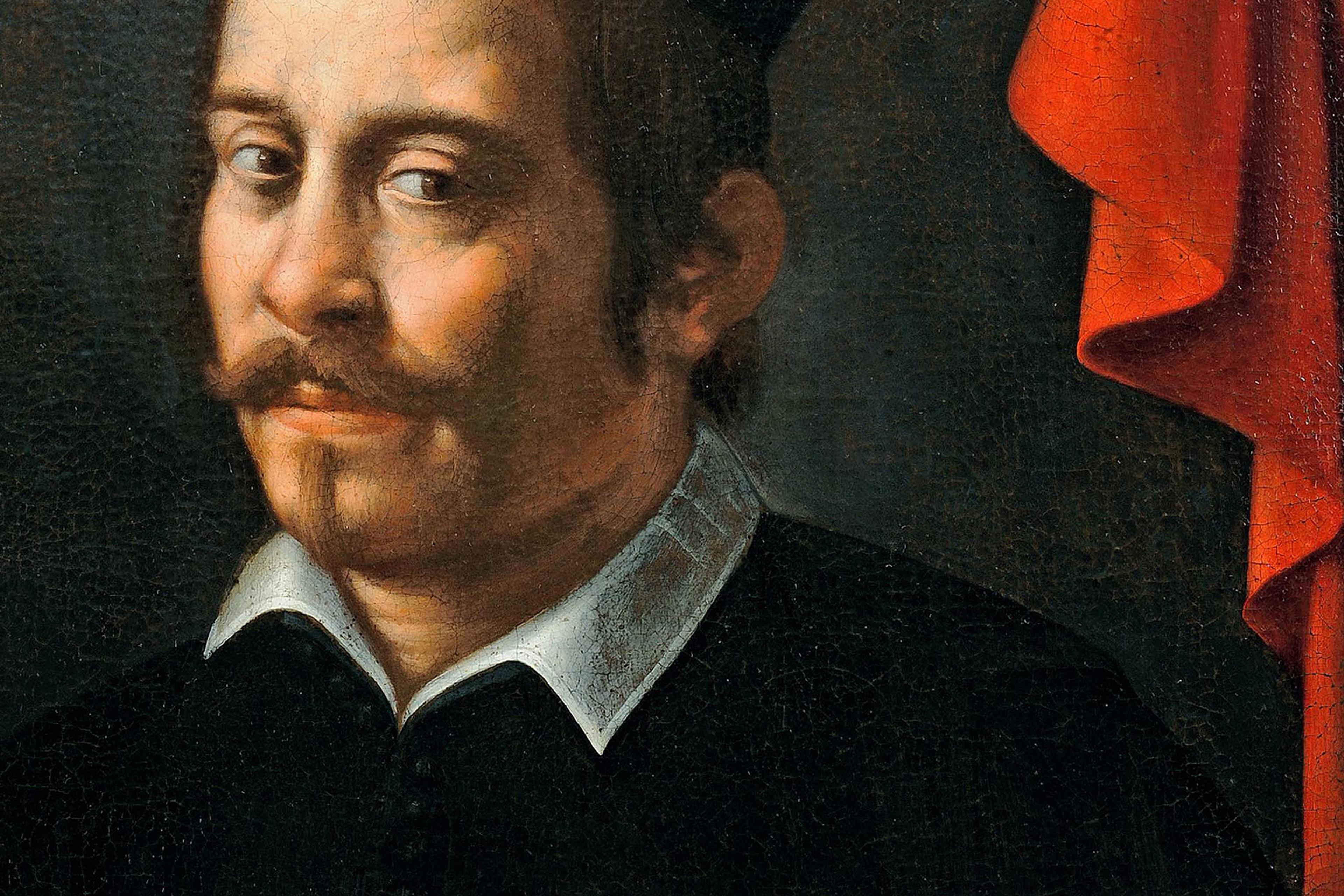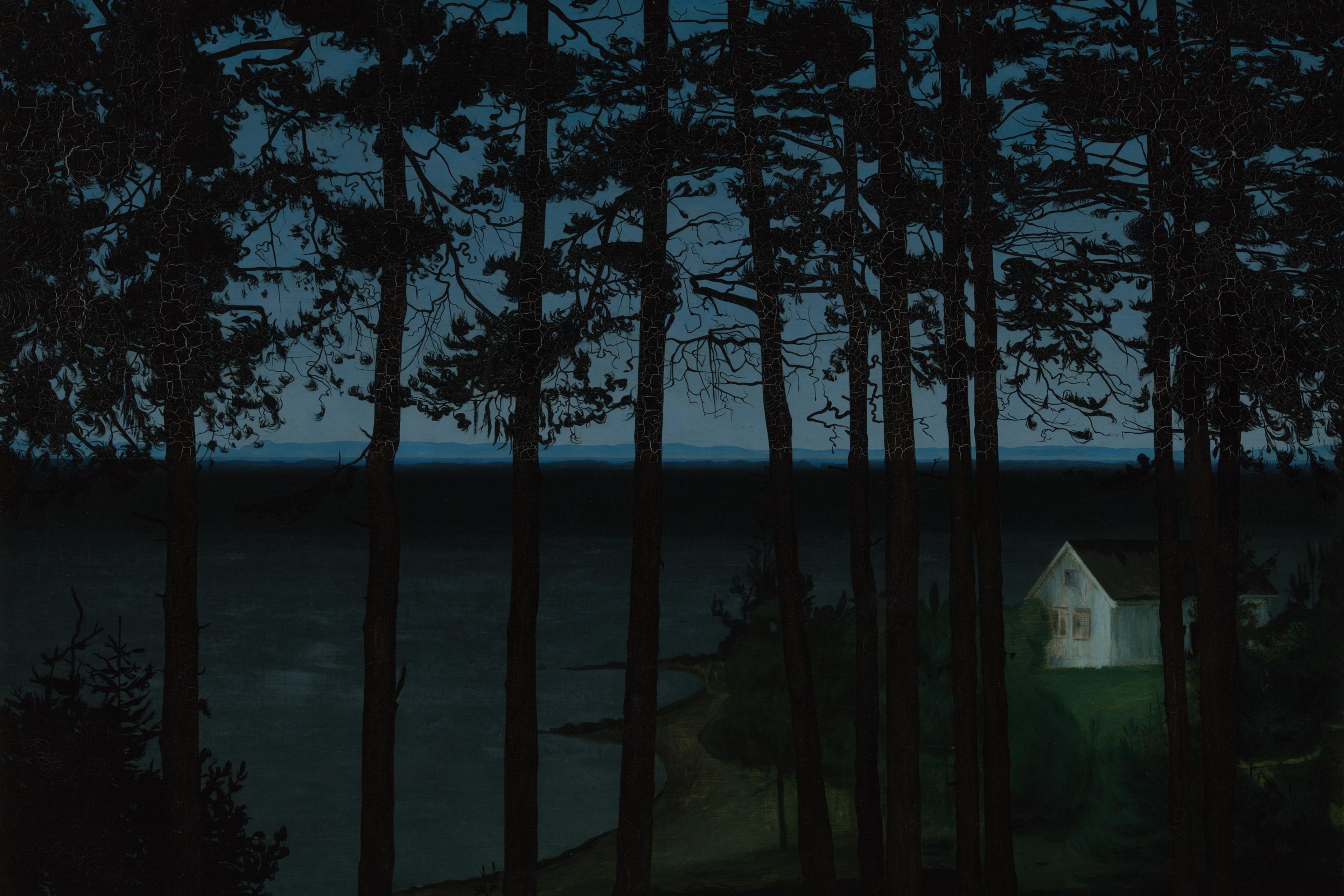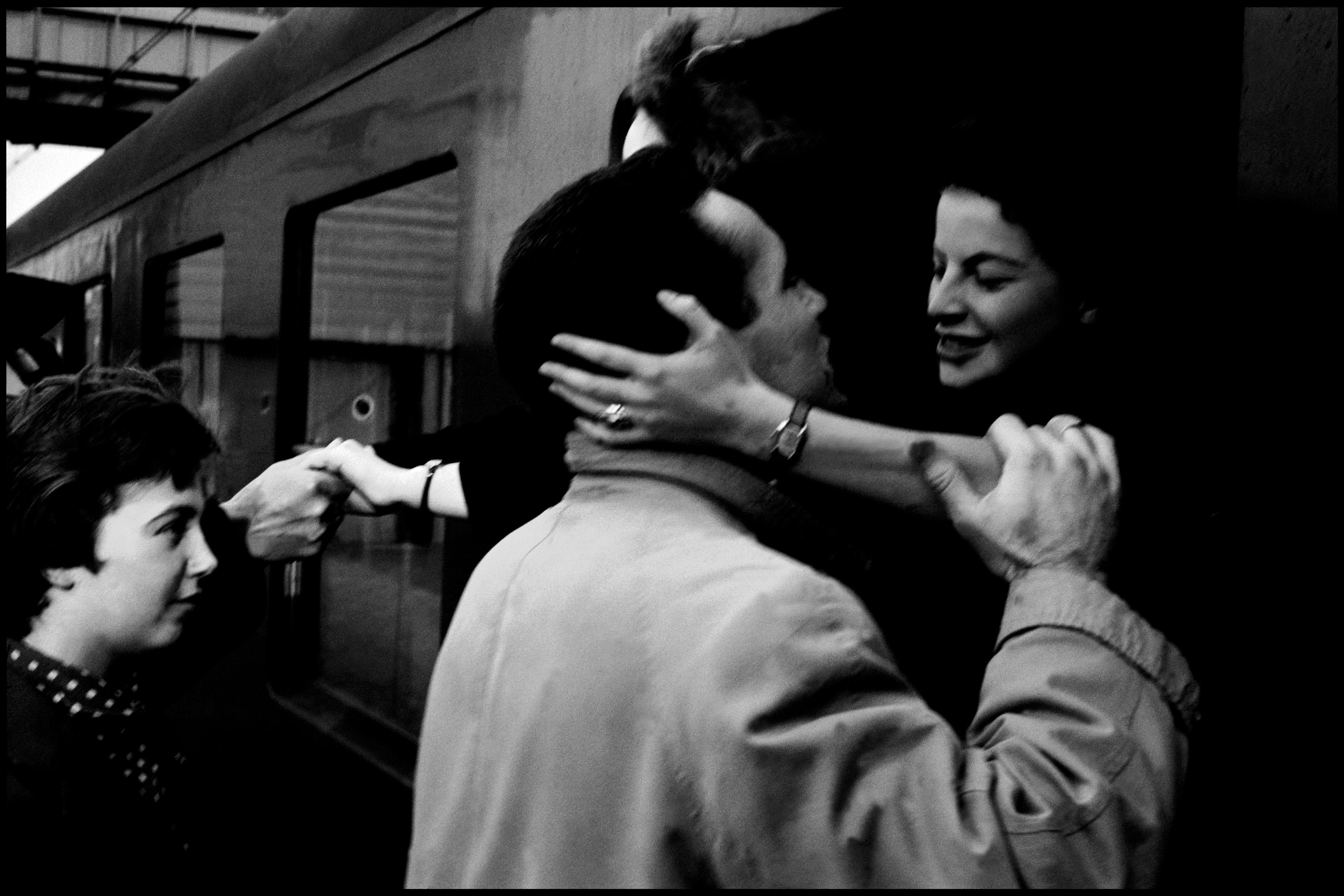‘Let us consider this waiter in the café. His movement is quick and forward, a little too precise, a little too rapid.’ I read these lines – perhaps with a diction a bit too deliberate – and look up from my copy of Jean-Paul Sartre’s Being and Nothingness (1943) at a room-full of students lining both sides of a long conference table. ‘He comes toward the patrons with a step a little too quick. He bends forward a little too eagerly; his voice, his eyes express an interest a little too solicitous for the order of the customer.’ Am I reciting this a little too emphatically? One student is doodling in a notebook, others scribble in theirs. A few of them look at me while I look around at them. Just as I am mostly engaged in displaying my engagement, I wonder if the students are also busy being engaged.
Mais oui, it’s another mauvaise foi Monday. Bad faith abounds not just at the Parisian café where Sartre watches the waiter, but also in the seminar room in Houston where I watch myself teaching my class on existentialism. Though I have been a professor for more than 30 years, I began teaching this course only recently: unlike with earlier courses, where I feared simply phoning them in, I now swung to the fear that I was being a phony. That I was, like Sartre’s waiter, playing a game. ‘We need not watch long before we can explain it: he is playing at being a waiter in a café. There is nothing there to surprise us.’ Yet I am surprised – in a way that makes me question not just my place, but existentialism’s place in the room. As Sartre might say: is my course, myself? Am I foolish in thinking I can profess a philosophy that requires personal authenticity and political engagement?
Sartre knew a thing or two about Parisian cafés. During the German occupation, he was practically resident at Café de Flore, on the fashionable Boulevard Saint-Germain. Come winter, friends and students could find him there, bundled in a fake-fur collar and writing furiously at a mahogany table next to the café’s heater. Writing, Sartre believed, was resistance by other means. After the liberation of France, he declared that he was a ‘writer who resisted, and not a resistance fighter who wrote.’
Yet this writer who resisted had also, in 1941, published an essay – on Herman Melville’s novel Moby-Dick (1851) – in the collaborationist weekly Comoedia. (Like Ahab in pursuit of the whale, Sartre could not help pursuing publication, even in the tainted press.) Being and Nothingness was also published during the occupation – the censors seeing nothing in the work that posed a threat to the Thousand-Year Reich. A 700-page pavé, or brick, where islands of brilliant prose dot a sea of dense philosophising, the treatise was scarcely reviewed when it appeared in 1943.
That same year, Sartre’s play The Flies – a reworking of the Orestes myth – found a similar fate, its theme of rebellion echoing in a largely empty theatre during its very brief run. Among those who did attend, though, was Albert Camus, author of the recently published The Stranger and The Myth of Sisyphus. At opening night, the French Algerian approached Sartre with a simple ‘I am Camus.’ He knew that Sartre already knew his name. Just weeks before, Sartre had published a long and incisive review of the two books, equally charged by Camus’s insistence that the meaning of life in the face of an absurd world is ‘the most urgent of questions’.
Sartre did not know that Camus, soon to become editor of the resistance journal Combat, had already begun his next novel, The Plague. Published in 1947, the novel tells the story of a handful of individuals who, confronting an outbreak of the bubonic plague in the French Algerian city of Oran, join forces to resist it. As the narrator Dr Rieux notes, the outbreak of this microbiological pestilence seemed absurd. But no less absurd, really, than the outbreak of ideological pestilences like totalitarianism. We find it hard to believe, as Rieux remarks, in those plagues ‘that crash down on our heads from a blue sky.’ When they do crash down, though, we cannot pretend they do not concern us. Trapped in Oran when the plague strikes, a journalist protests to Rieux that he does not belong there. For now, the doctor replies, he does. As do we all when the absurd, whether political or epidemiological, strikes our community. If meaning can be found in this absurd state of affairs, it lies in the collective act of resistance. And ‘This business,’ the journalist soon discovers, ‘is everybody’s business.’
Acting as though it is everybody’s business – the heart of existentialist ethics – informed the writings and actions of Sartre and Camus for the remainder of their lives. In fact, their friendship collapsed in 1952 over differences about exactly what this imperative entailed. While Sartre leaned ever further to the Left, Camus held fast to the Centre. Sartre advocated revolution (hence his unapologetic defence of violence committed by Algerian nationalists), while Camus feared the excesses of revolution (hence his efforts to mediate the opposing claims of Algerian nationalism and French imperialism).
As Ronald Aronson rightly concludes in his book Camus and Sartre (2004), both men were ‘half right and half wrong’. In their pursuit of what was right, however, neither was content to dash off an article or lecture. Insisting on the existentialist claim that the philosopher’s place was the public space, they repeatedly risked their lives. In 1956, Camus was nearly lynched by a mob of French colonists in Algiers as he made the case for a civil truce. A few years later, Sartre’s presence at protest demonstrations against the government led to bomb attempts on his life. Sartre always acted as if he was being watched by ‘the eyes of the least favoured’ – his phrase – while Camus never forgot he was not ‘in the service of those who make history; he is at the service of those who suffer it.’
The commute from my home in the burbs to my class on campus – a soul-numbing stretch of interstate lined with billboards offering churches that pray for me, injury lawyers that fight for me, and topless clubs that entertain me – brings home the disconnect between my life and those of Sartre and of Camus. Of course, I feel a certain kind of disconnect when I teach the French Revolution or the Scottish Enlightenment, but they do not keep me awake at night. I have no skin in the game, but I feel skinned alive in the existentialism course, exquisitely aware of pretending to a quality I don’t really have. Existentialism, after all, defines us through our actions, our engagement. We are the sum of our actions, and outside of this we are nothing.
This, at least, was the world according to Sartre. You know, the shabbily dressed and tobacco-reeking fellow whom Charles de Gaulle, sighing that one does not arrest Voltaire, refused to have arrested for leading demonstrations against France’s use of torture and terror in Algeria. With just such a sigh I might say that this is why teaching this course is, to my mind, not comme les autres.
Bob Moses, a leader of the US Civil Rights movement, read philosophy at Harvard, then reread Camus’s books The Rebel and The Plague while in prison. In 1964, he told the US poet Robert Penn Warren that these works underscored
[T]he importance to struggle, importance to recognise in the struggle certain humanitarian values, and to recognise that you have to struggle for people, in that sense, and at the same time if it’s possible, you try to eke out some corner of love or some glimpse of happiness within.
But I was not, like Moses, in prison – the result of meshing his existential ethics with his political acts – but instead in a classroom, lecturing – or, perhaps, haranguing – my students.
What’s a professor – or, at least, this professor – to do? I am not sure, but I know harangues are not the answer. I think an answer might involve looking more carefully and listening more closely to students.
Earlier this semester, I was driving to campus – a commuter, not a Freedom Rider – and arranging my thoughts for our first class devoted to The Plague. Suddenly, the absurdity of it all struck me. What if the words in the books, I wondered, were little more than markings on paper for my students? Or are those words exploding at them, waking them to themselves and the roles they can play in the world? What will I find when the stage scenery becomes again what it is?
Reaching the class, I set my copy of Camus on the table and asked my students what, if anything, they had gotten from this book, or from any book we had so far read. One by one, they began to answer, and I was stunned by how these works spoke to them. I’d expected habitual replies, along the lines of the importance of engaging in public affairs. Instead, several spoke about personal relationships, and how these books led them to better project their future lives. A formidable young woman, long engaged in resisting the Nicolás Maduro regime in her native Venezuela, told us that Sartre’s appeal to authenticity in Existentialism Is a Humanism (1946) encouraged her to come out to her conservative parents. ‘I could not live in bad faith,’ she said, ‘and pretend to be something I am not.’
A terribly bright student raised near our oil refineries – the possible source of her battle with a degenerative disease and chronic pain – and whose house was submerged by Hurricane Harvey, was thrilled to discover that Camus, despite his own personal trials, insisted on not only resisting the absurd, but doing so joyfully. An admirable young man who works with undocumented immigrants surprised me. In Sartre’s novel Nausea (1938), he announced, he’d found the words to revolt against the values of his fundamentalist Christian parents. When his father, seeing his son shed his religious beliefs, told him he was not being himself, the student had a liberating realisation: ‘I do not want to be myself, as if there were a self to hold on to; as Roquentin concludes, I believe, there is no self to cling to. The “I” is not an object; it is a verb.’
I do not know how Sartre and Camus would have responded to such unexpectedly personal professions of existentialist faith. I still don’t know what to think of them myself. But they brought me back to Moses’s existentialist credo that ‘you try to eke out some corner of love or some glimpse of happiness within.’ You struggle not just on behalf of others, but also on behalf of your own self. These two activities are not independent of one another but are joined at the hip. Breaking them apart would only make us limp (a point Camus made, though far more beautifully, in his Nobel Prize address in 1957). As for the kids, I can only paraphrase Dr Rieux: I find there are more things to make me admire our youth than to make me despair.
